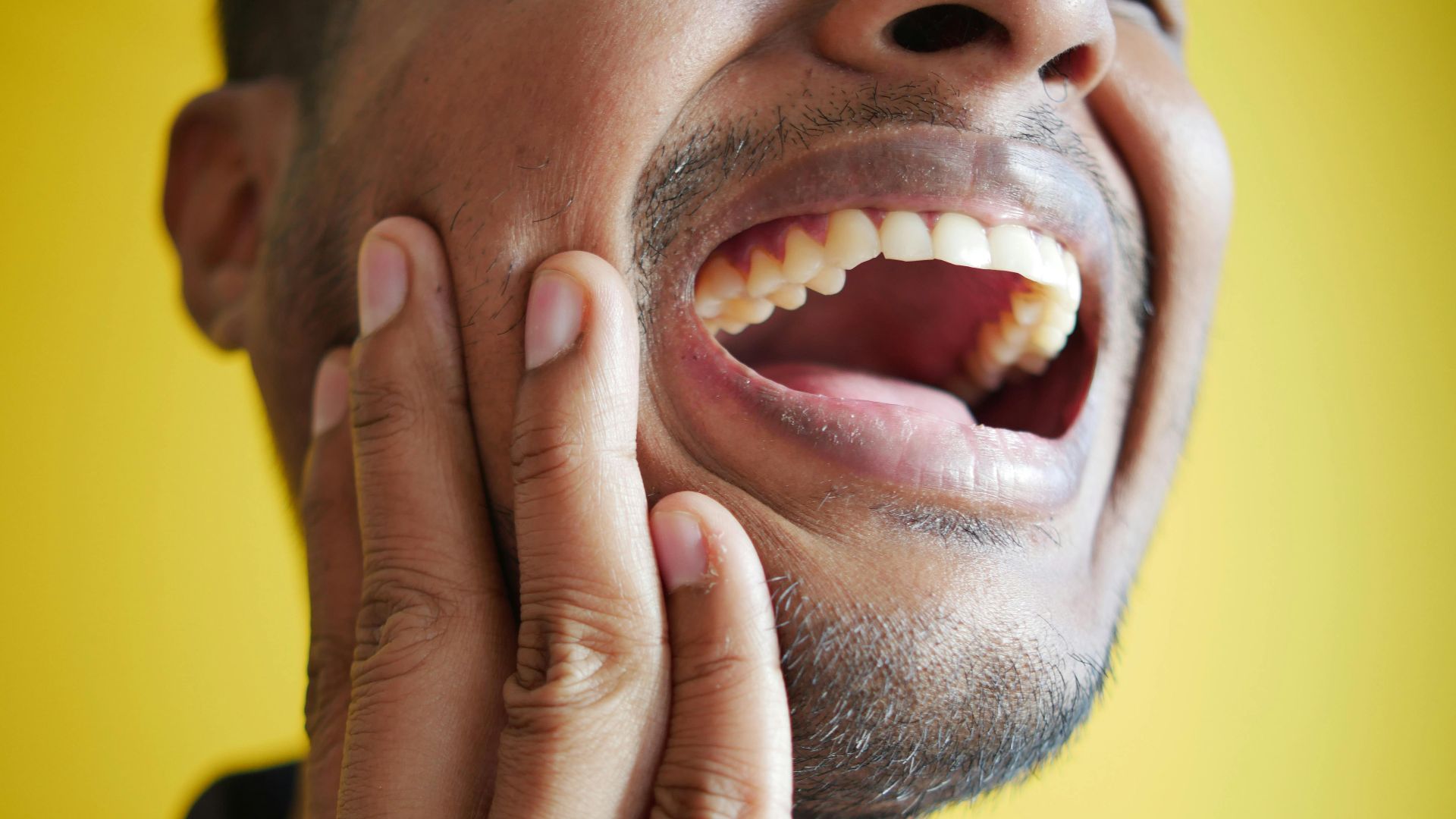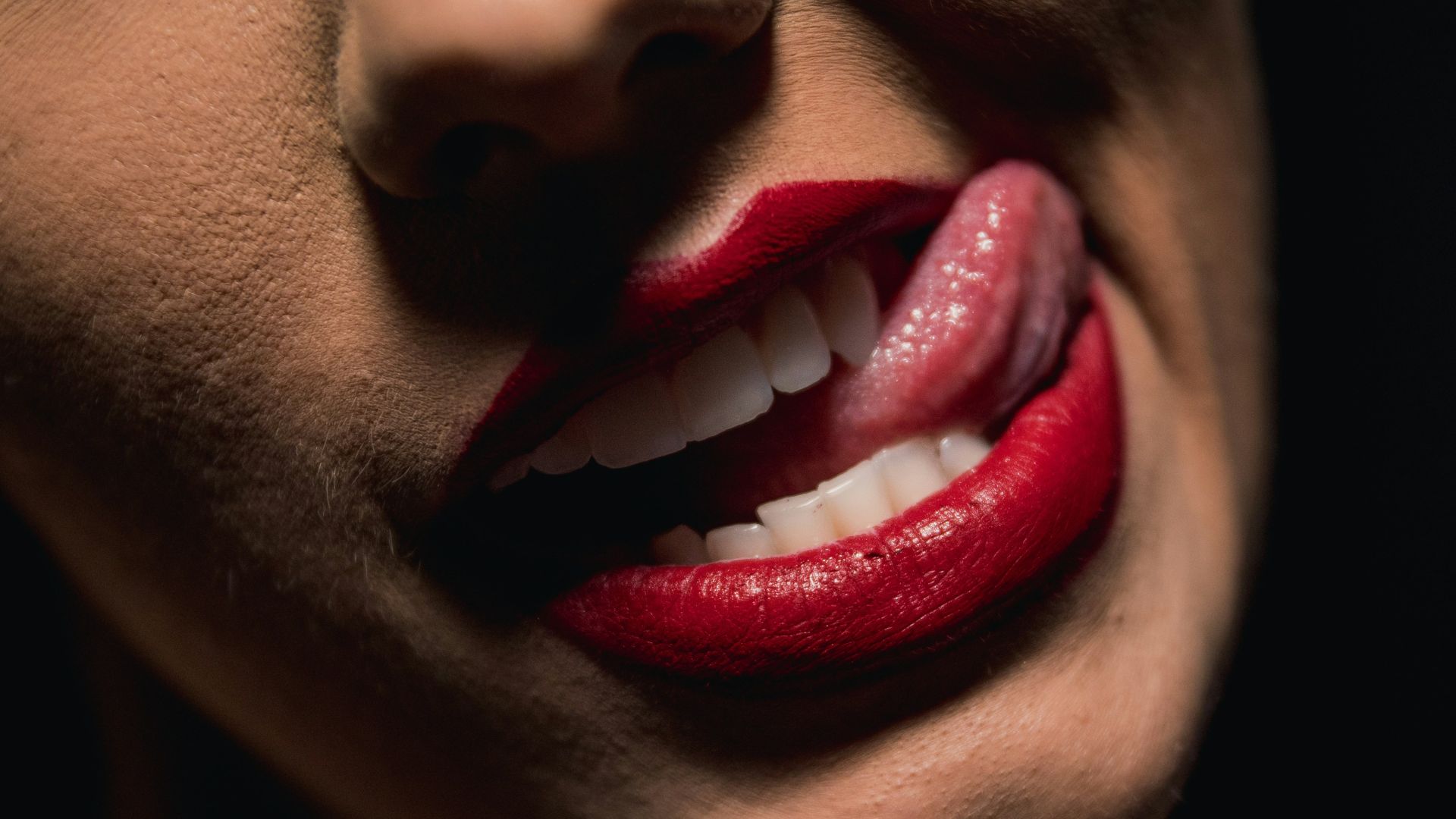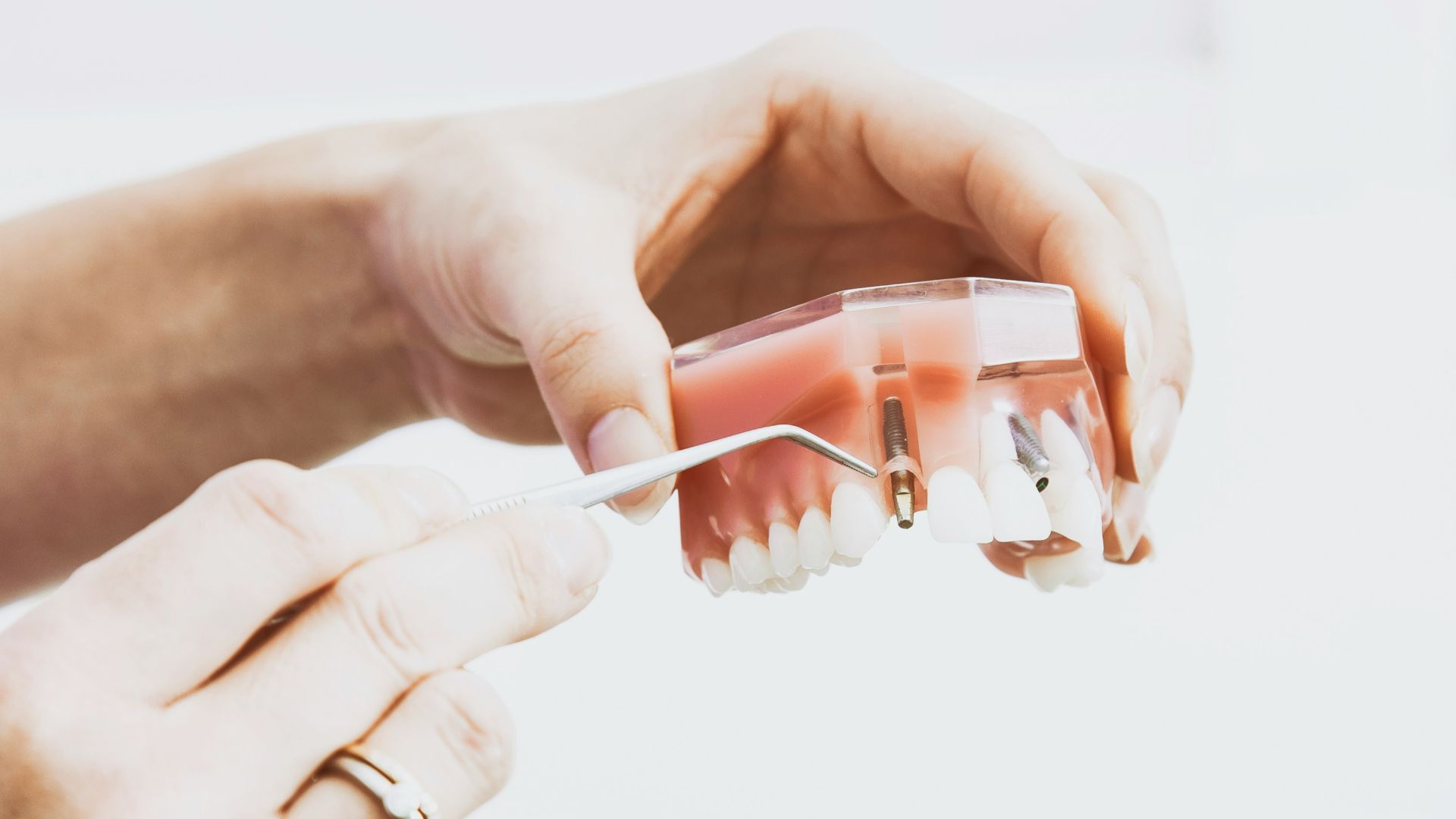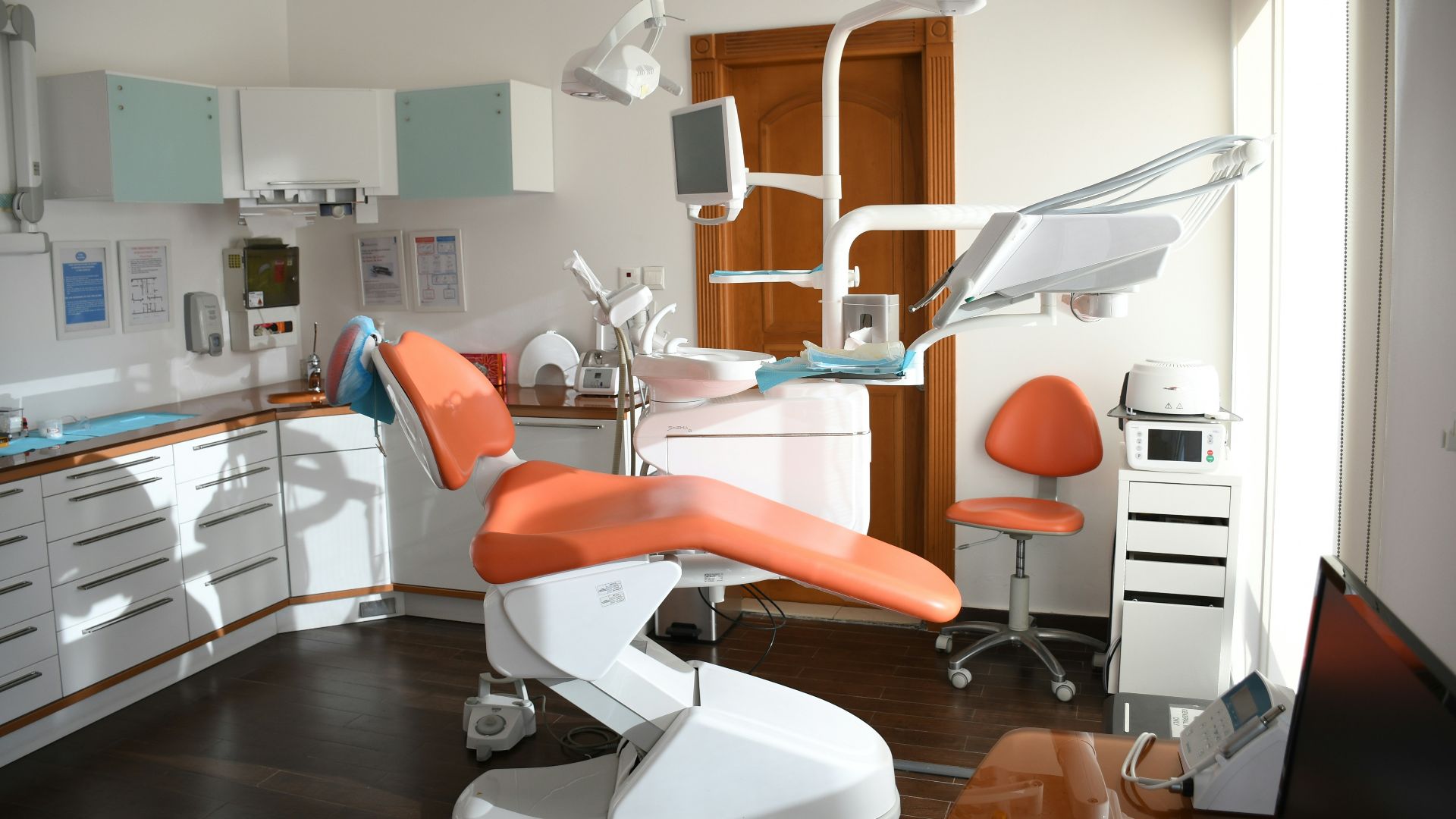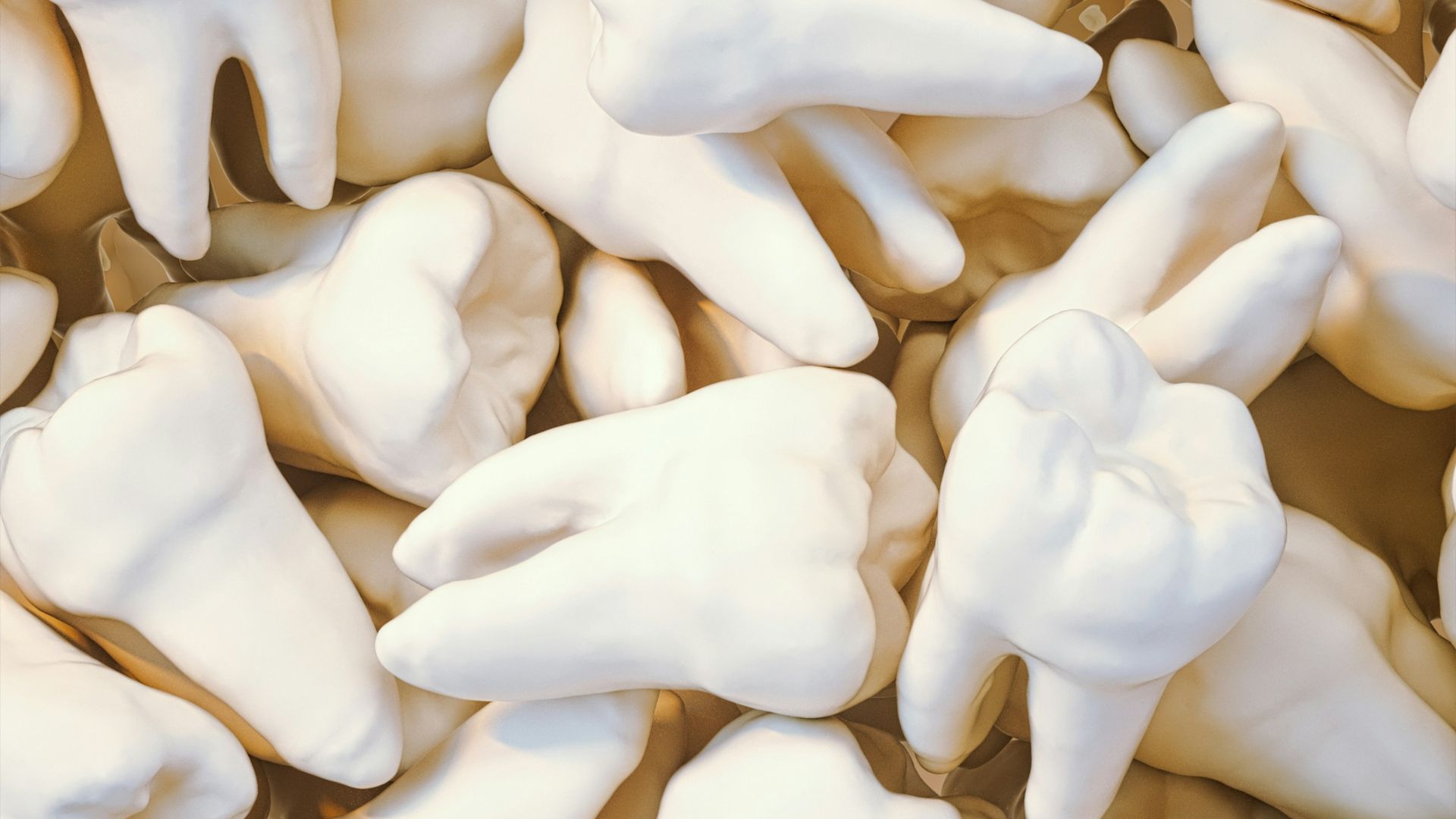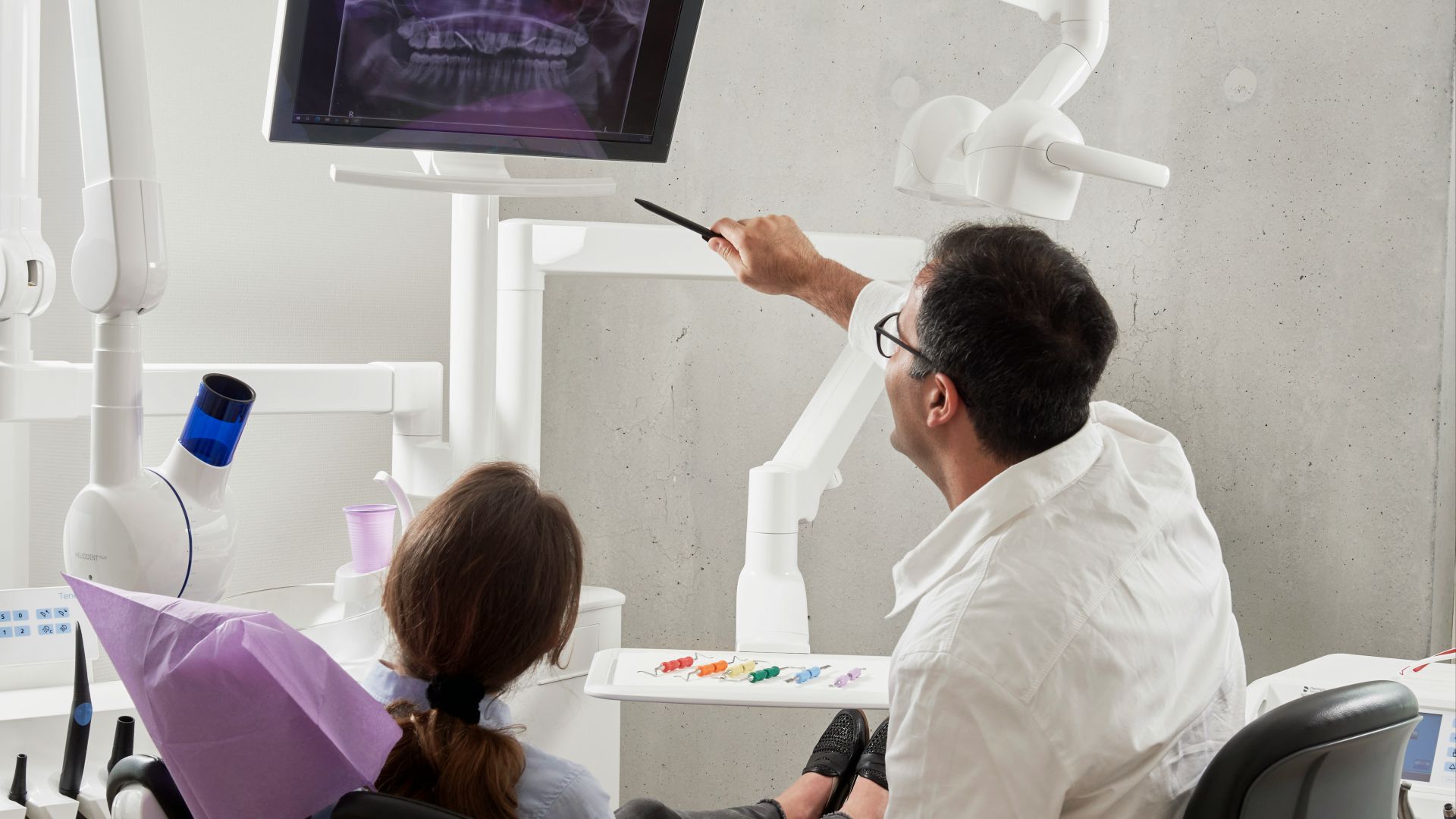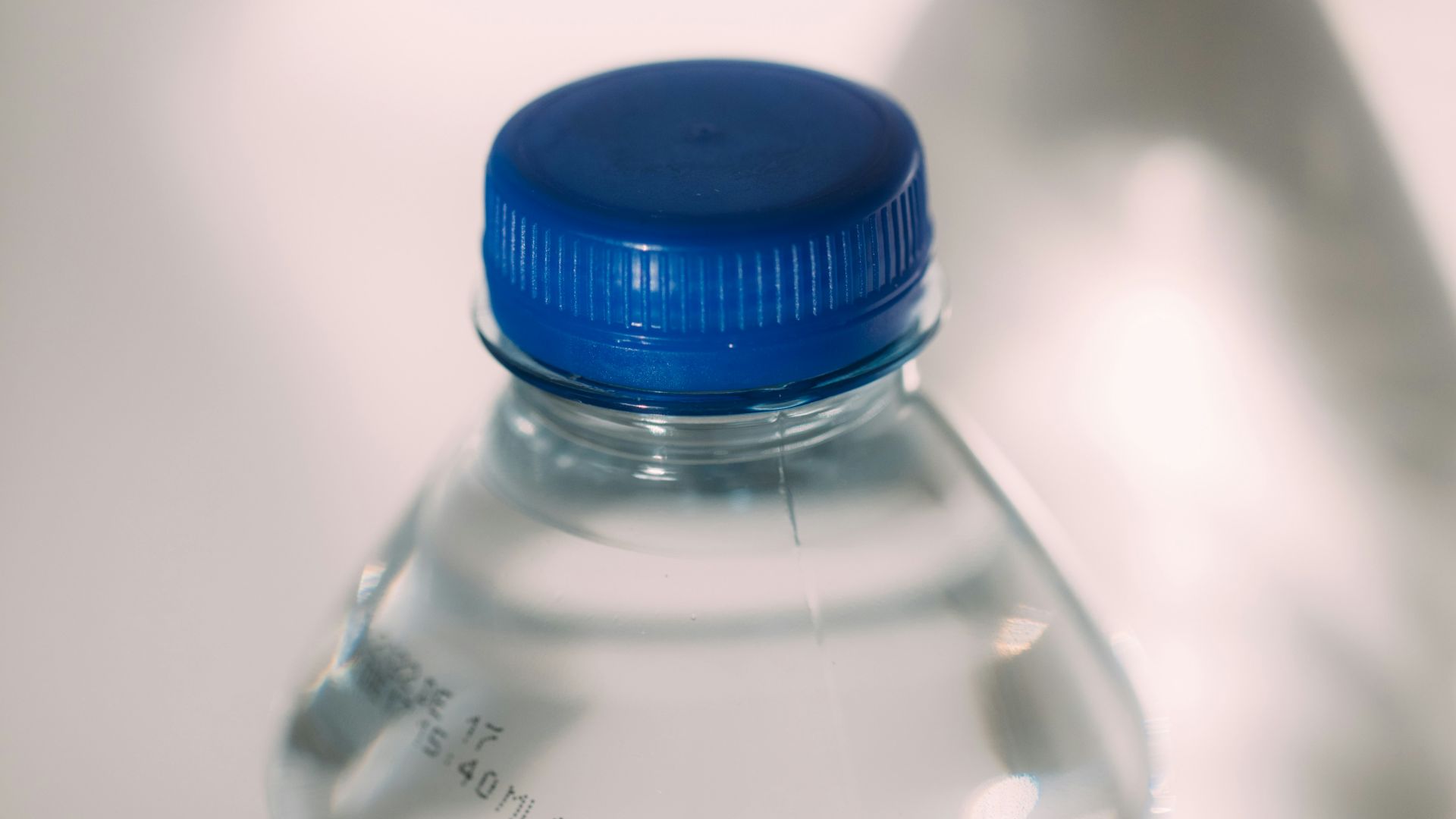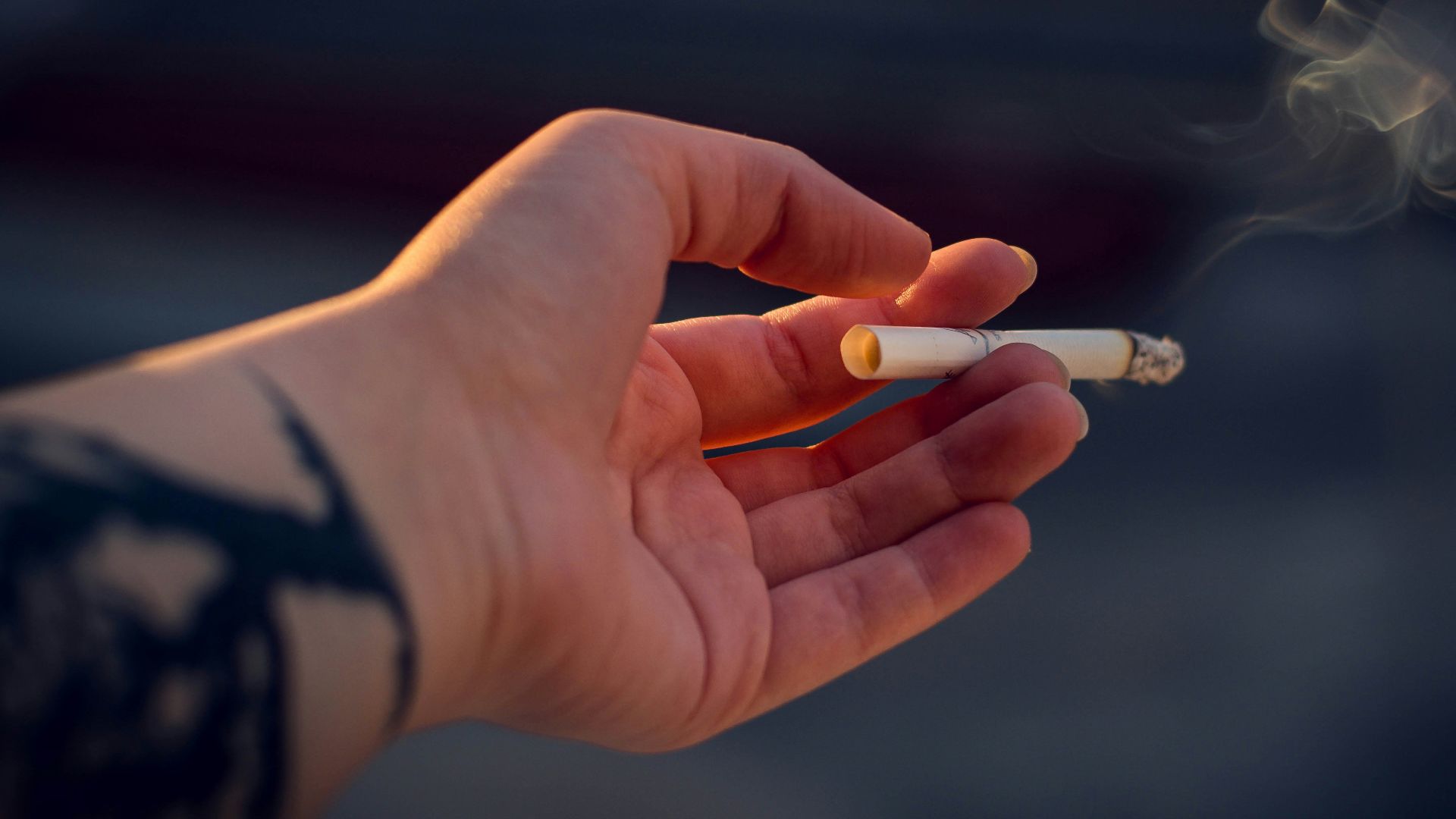How to Stop the Daily Grind
You have enough grinding your gears every day, you don’t need to throw your teeth in the mix! No one wants to worry about cracked teeth or bleeding gums, but that’s just the tip of the iceberg with teeth grinding (or bruxism for its fancy name). Join us as we walk through some symptoms to keep an eye on and a few ways you can curb the clench.
1. Tooth Sensitivity
As you can probably guess, clenching your teeth doesn’t do them any favors. When your jaw betrays you at bedtime, your teeth pay the price with sensitivity to worn-down enamel. If you notice any sensitivities, it might be time to see a specialist.
2. Waking With a Clenched Jaw
Our teeth often get away with all that grinding, but you still might catch them in the act. Have you ever woken up with your jaw in a vice grip? What about waking up to unpleasant chewing motions? Both are bad signs that you grind at night.
3. You Have Additional Pain
The scariest thing about bruxism is how it affects other areas of the body. As terrifying as they are, anatomical diagrams show just how connected our nerves are to our teeth, which means tooth pain can often lead to headaches, earaches, and even jaw pain down the road.
4. Chew Marks on Your Cheek
No one wants to play detective when they wake up, but a little forensic work can reveal whether you grind or not. Run your tongue along the insides of your cheeks—if you notice any bite marks, you likely chow down at night.
5. Trouble Sleeping
Headaches, earaches, jaw aches, you name it! With so much discomfort, it’s harder to get a good night’s sleep, and it’s often a good indicator of bruxism. Keep a sleep journal or take mental note of just how many hours you get. Anything less than the recommended seven to nine could spell trouble.
6. Worn Down Enamel
We touched on worn-down enamel already, but it warrants a bigger discussion. When we wear down the enamel, there’s no way to get it back; we’re left to deal with tooth sensitivity, a greater risk of cavities, and a higher risk of tooth decay. It’s always worth discussing next steps with your dentist, especially to prevent further damage.
7. Difficulty Eating
Tooth pain might not seem like a big deal…until you’re face-to-face with a bowl of ice cream. Even something like a nice mug of tea can cause serious discomfort, and bruxism is to blame. If you struggle with everyday food and drink, it might be time to see a dentist.
8. Gum Issues
Our teeth and gums are a package deal—when one suffers, so does the other. Perhaps bruxism’s greatest crime is gum recession, which exposes the roots and can cause a greater risk of periodontal disease. Your dentist can detect further symptoms, such as bleeding gums, sensitivities, and asymmetrical gum lines.
9. Body Pain
Remember how we talked about jaw pain and earaches? Unfortunately, the fun doesn’t end there. Bruxism can also cause neck and shoulder pain, which is why it’s so important to visit the dentist if you notice any early signs.
 Photo By: Kaboompics.com on Pexels
Photo By: Kaboompics.com on Pexels
10. Damaged Teeth
We’ve talked about headaches. We’ve talked about receding gums. But we haven’t mentioned our poor teeth yet. All that grinding causes an onslaught of problems: flat teeth, cracked teeth, and even loose teeth can all indicate a serious problem.
Now that we’ve gone over a few scary symptoms, it’s time to jump into the treatment! Here are a few things you can do to prevent further damage.
1. Schedule Regular Dentist Appointments
Most people get away with bi-annual dentist trips, but everyone’s mouth is different. There’s no shame in booking an appointment to ensure everything’s okay under the hood. Even if you don’t think you grind your teeth, a dentist can spot otherwise overlooked symptoms.
2. Invest in a Mouth Guard
We know what you’re thinking: no one has the money for a professionally-made mouth guard. We hear you, and the good news is that you still have affordable options. Speak with your doctor about which route makes the most sense for you; many OTC mouth guards get the job done.
3. Monitor Your Stressors
As if we needed another reason to fear our stress levels. Believe it or not, too much stress can cause bruxism, leading to a vicious cycle of tooth pain and poor sleep—which only exacerbates the problem. Make time for yourself and keep on top of your triggers. You not only deserve a healthy mind, but a healthy mouth, too.
4. Practice Jaw Exercises
The right jaw exercises can stop conditioned movements in their tracks. Speak with your dentist about the best exercises and how often you should do them. Anything from gentle opening and closing to simple tongue exercises can rewire your jaw.
5. Stay Hydrated
Water is the stuff of life, but it’s also one of the biggest defenders against bruxism. By staying hydrated, you keep your teeth and gums lubricated and can even relax your jaw muscles. Time to bring that reusable bottle everywhere you go!
6. Avoid Stimulants Before Bed
Coffee before bed is never a good idea, but it’s especially bad for anyone with bruxism. Common stimulants like alcohol, caffeine, or nicotine can build muscle tension, which could easily lead to grinding at night.
7. Get More (and Better) Sleep
It’s not always easy to sleep well, especially when you’re in pain, but that doesn’t mean you can’t improve your nighttime routine. Maintain a proper schedule, put your phone away, and try to manage your stress levels throughout the day. Dentists agree that getting better sleep can reduce the effects of bruxism.
8. Recognize When You Grind
You might not spot it every time, but try to keep an eye out for clenching. As soon as you notice the grinding, make a conscious effort to stop. Readjustments can help program your jaw to soften during the day, and eventually, at night.
9. Avoid Mindless Chewing
Your teeth have gone through enough—they don’t need you chomping on pen caps or gum all day! Mindless chewing can exacerbate jaw pain and tooth sensitivity, so keep away from certain vices.
10. Steer Clear of Certain Foods
Bruxism might mean a complete overhaul of your diet. Speak with your dentist about whether you should still eat things like hard candy, steak, or even some vegetables like carrots. Tough and hard textures work the jaw, which can worsen pain and strain your muscles.
KEEP ON READING

20 Natural Ways You Can Boost Your Immune System

20 Ways To De-stress & Relax After Work

The 10 Most Common Diseases & The 10 Most Rare



